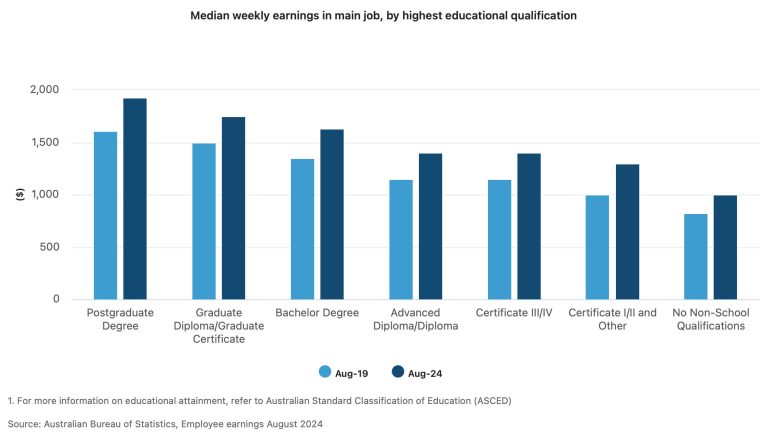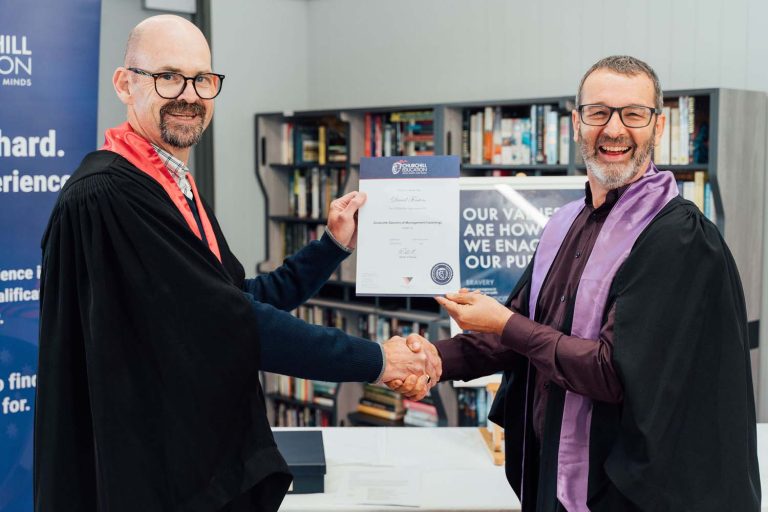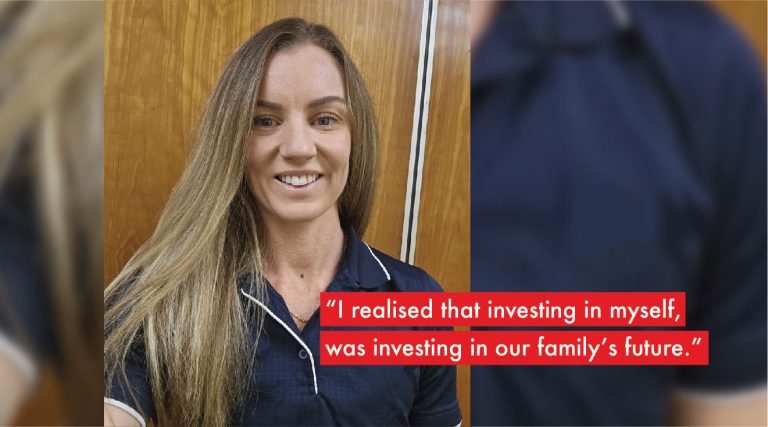Career change is widely held to be one of the top five most challenging life events. It can knock your confidence, and it can also put immense financial pressure on you and your family, which in turn can severely impact mental health. In this article we share seven career change tips from our graduates.
We speak to many people in the midst of career change. One in particular is doing it a bit tough. Unemployment in his hometown is around 10%. His career has been really impressive and it is disheartening for anyone who wants to work, to find themselves between jobs.
Find out what you’re eligible for
We are doing everything we can to lend him a hand.
We also put a request out to our Churchill Education Alumni – a community of proactive, dedicated, and hardworking individuals.
We asked …
What is your best advice for someone transitioning careers, changing industries or relocating?
1. Get Proactive
“I spent 18 months trying to get a job in Hervey bay with no luck. I eventually moved to Adelaide and had employers lining up. I found the best advice was to stop applying for advertised jobs and start walking into places and chatting. The area is old school and people responded better to a personal touch.”
– Kieron
2. Be Prepared
“My greatest tools were my boots. I dressed professionally (suit), walked in the front door – and asked to speak to the manager. I tried to research the company before I went so I came across as genuinely interested and keen to join their team. Go in prepared; take your resume in a compendium or other neat folder. (Include a picture so they remember you.) I even offered to work for free so they could get to know me. I was hired on the spot. Even get your own insurance if needed.”
– Gordon
3. Be Adaptable
“I graduated in Automation of Railway Transport in Bulgaria in ’96, since then I’ve never worked a single day in my speciality. I’ve been everything; bar tender, delivery driver, taxi driver, shop assistant, shop manager, dispensing optician, and national sales manager for polished diamonds. Then the GFC hit and I had to change jobs again. I learnt how to draw, design and build houses. My first project was a huge success – I made enough profit to build my own house! We have to adapt and take on new challenges.”
– Dimitar
4. Perseverance Pays Off
“After the demise of the heavy steel mills in Newcastle I lost my job. I placed the last of my time and money into a new career, which left me and my wife cash strapped. It took some time, but eventually out of the blue, a new role was offered to me.”
– Peter
5. Be Flexible
“Sometimes, for all the ability and professional acumen that you possess, there are just not enough jobs going around. Throw the net out further. Look at jobs in other towns, cities or a different state.”
– Barry
6. Do What it Takes
“Ideally I’d like to have a job where I could be at home in Cairns with my family permanently, however the labour market for a long time after the GFC was flat to put it politely. WA is kicking off again and I will be applying for jobs there along with paying for flights to Perth to put myself in the market. I’ve also been looking to see exactly what these employers are after.”
– Chris
7. Start Your Own Business
“When my tender closed at the mines ten years ago I wanted a similar job. As I could not find one that suited my needs I started my own business where I could utilise my entire skill set.”
– Brian
There is some great advice here. We hope one of these tips might help you now or in the future. Feel free to share this article with anyone else changing careers.
And make sure your skills and experience are fully reflected through recognition of prior learning (RPL). Nationally recognised qualifications are a language any employer can understand – something all of our Alumni can attest to.








